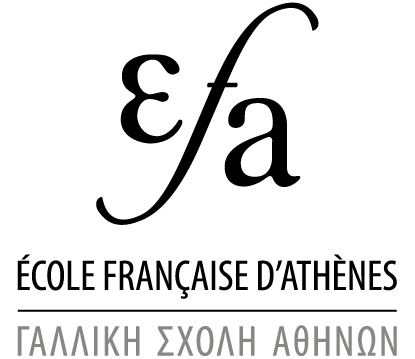
Second Europe: Imagining a Postcolonial Mediterranean through the Balkans
Bogdan Iacob “Nicolae Iorga” Institute of History (Romanian Academy)
Respondent : Olivier Givre Université Lyon 2 / EFA
Séminaire hybride / Υβριδικό σεμινάριο / Hybrid seminar
=> Salle des conférences de l’EFA, Didotou 6 / Αίθουσα διαλέξεων της ΓΣΑ, Διδότου 6 / EFA Conference room, Didotou 6
=> Inscription au webinaire / Εγγραφή στο webinar
Politically, southeast Europeans argued at CSCE for a third space outside the East and West comprising “European developing states” (later in the decade Spain and Portugal joined in) characterized by their semi-peripheriality in the world economic system and solidarity with postcolonial causes such as the New Economic International Economic Order. This narrative resonated with parallel debates at UNESCO and its non-governmental international organizations. Officials in Paris sought to connect UNESCO’s European programs to the emancipation of newly independent countries. One of these initiatives was a program of studies of civilizations focused on the connections between the Balkans and the Mediterranean. The institution assigned to implement it was the International Association for Southeast European Studies (AIESEE, created by UNESCO in 1963). It comprised national, specialized committees from 26 countries, but its program was controlled by Balkan scholars. AIESEE imagined the Mediterranean as a Second Europe, whose past (Hellenization, Roman, Byzantine, and Ottoman Empires) fuelled an Europeanness alternative to the West because of its intercultural cross-fertilizations with North Africa and the Middle East.
The political and intellectual projections of south-east Europe into wider symbolic geographies to escape Cold War isolation and bipolarism ultimately failed because of tensions within the region, ethnocentrism and broader geopolitical dynamics. By the end of the 1970s, Europe converging on its north-west through the European Communities began its ascension to hegemony over Europeanization discourses. Nevertheless, the Balkans’ self-immersion into the Mediterranean space stood out: it was a subaltern attempt to employ terrains provided by international organisations to challenge and retool existing Cold War frameworks, only to be lost in the long shadow EU-centric Europeanization discourse.
Bogdan C. Iacob is a researcher at the “Nicolae Iorga” Institute of History (Romanian Academy). His work centres on the study of Eastern European expert knowledge (historians and physicians) in global contexts during the twentieth century. He has also published on the year 1989 and its aftermath as well as on transitional justice. He co-authored 1989. A Global History of Eastern Europe (Cambridge UP, 2019) and the collective monograph Socialism Goes Global. The Soviet Union and Eastern Europe in the Age of Decolonisation (Oxford UP, 2022). Other recent publications: “Southeast by Global South: Balkans, UNESCO and the Cold War” in Artemy Kalinovsky, James Mark, and Steffi Marung eds., Alternative Globalizations and the Postcolonial World (Indiana UP, 2020); “Balkan Antiquity as Decolonial Eurocentrism during the Cold War” in James Koranyi and Emily Hanscam eds., Digging Politics: The Ancient Past and Political Present in East-Central Europe (De Gruyter, 2022).
Le Séminaire moderne et contemporain est un moment d’échange dans lequel les chercheurs des programmes de la section moderne et contemporaine et des intervenants invités peuvent présenter leurs travaux en lien avec les axes thématiques de l’EFA et avec la programmation scientifique de la section, mais aussi avec l’actualité de la recherche sur les Balkans et la Méditerranée orientale. Lieu de rencontre entre chercheurs venant d’horizons différents, le séminaire vise tout à la fois à valoriser les recherches menées à l’EFA en histoire moderne et contemporaine, anthropologie, géographie, sociologie et histoire de l’art (et autres), et à faire connaître auprès de la communauté de l’EFA les recherches menées dans d’autres institutions de la région.
The Modern and Contemporary Studies Seminar is a moment of exchange gathering guest speakers and researchers from the programs of the modern and contemporary section, to present their work in connection with the structuring themes of the EFA and the research agenda of the section, as well as with current research on the Balkans and the Eastern Mediterranean. As a meeting point for researchers from different backgrounds, the seminar aims to promote the research carried out at the EFA in modern and contemporary history, anthropology, geography, sociology and art history (and others), but also to disseminate to the School’s community other research carried out by several institutions in the area.
secretariat.dir_etudes@efa.gr
+ 30 210 36 79 904Nolwenn Grémillet
Communication
nolwenn.gremillet@efa.gr
+ 30 210 36 79 943

